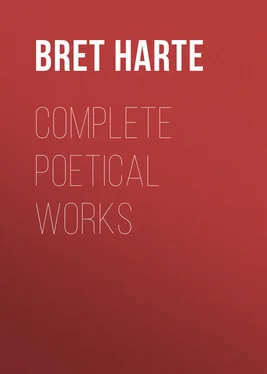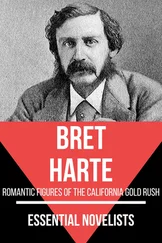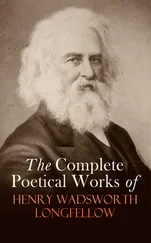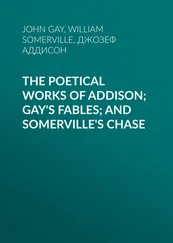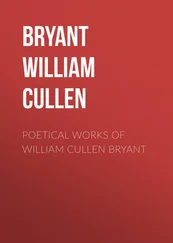Bret Harte - Complete Poetical Works
Здесь есть возможность читать онлайн «Bret Harte - Complete Poetical Works» — ознакомительный отрывок электронной книги совершенно бесплатно, а после прочтения отрывка купить полную версию. В некоторых случаях можно слушать аудио, скачать через торрент в формате fb2 и присутствует краткое содержание. Жанр: foreign_poetry, literature_19, Поэзия, foreign_antique, foreign_prose, на английском языке. Описание произведения, (предисловие) а так же отзывы посетителей доступны на портале библиотеки ЛибКат.
- Название:Complete Poetical Works
- Автор:
- Жанр:
- Год:неизвестен
- ISBN:нет данных
- Рейтинг книги:5 / 5. Голосов: 1
-
Избранное:Добавить в избранное
- Отзывы:
-
Ваша оценка:
- 100
- 1
- 2
- 3
- 4
- 5
Complete Poetical Works: краткое содержание, описание и аннотация
Предлагаем к чтению аннотацию, описание, краткое содержание или предисловие (зависит от того, что написал сам автор книги «Complete Poetical Works»). Если вы не нашли необходимую информацию о книге — напишите в комментариях, мы постараемся отыскать её.
Complete Poetical Works — читать онлайн ознакомительный отрывок
Ниже представлен текст книги, разбитый по страницам. Система сохранения места последней прочитанной страницы, позволяет с удобством читать онлайн бесплатно книгу «Complete Poetical Works», без необходимости каждый раз заново искать на чём Вы остановились. Поставьте закладку, и сможете в любой момент перейти на страницу, на которой закончили чтение.
Интервал:
Закладка:
And I saw not a thing, as I ran to the spring,
But a splintered fence rail and a broken-down swing,
And a bird said "Kerchee!" as it sat on a tree,
As if it was lonesome, and glad to see me;
And I filled up my pail and was risin' to go,
When up comes the Major a-canterin' slow.
When he saw me he drew in his reins, and then threw
On the gate-post his bridle, and—what does he do
But come down where I sat; and he lifted his hat,
And he says—well, thar ain't any need to tell THAT;
'Twas some foolishness, sure, but it 'mounted to this,
Thet he asked for a drink, and he wanted—a kiss.
Then I said (I was mad), "For the water, my lad,
You're too big and must stoop; for a kiss, it's as bad,—
You ain't near big enough." And I turned in a huff,
When that Major he laid his white hand on my cuff,
And he says, "You're a trump! Take my pistol, don't fear!
But shoot the next man that insults you, my dear."
Then he stooped to the pool, very quiet and cool,
Leavin' me with that pistol stuck there like a fool,
When thar flashed on my sight a quick glimmer of light
From the top of the little stone fence on the right,
And I knew 'twas a rifle, and back of it all
Rose the face of that bushwhacker, Cherokee Hall!
Then I felt in my dread that the moment the head
Of the Major was lifted, the Major was dead;
And I stood still and white, but Lord! gals, in spite
Of my care, that derned pistol went off in my fright!
Went off—true as gospil!—and, strangest of all,
It actooally injured that Cherokee Hall!
Thet's all—now, go 'long! Yes, some folks thinks it's wrong,
And thar's some wants to know to what side I belong;
But I says, "Served him right!" and I go, all my might,
In love or in war, for a fair stand-up fight;
And as for the Major—sho! gals, don't you know
Thet—Lord! thar's his step in the garden below.
CALDWELL OF SPRINGFIELD
Here's the spot. Look around you. Above on the height
Lay the Hessians encamped. By that church on the right
Stood the gaunt Jersey farmers. And here ran a wall,—
You may dig anywhere and you'll turn up a ball.
Nothing more. Grasses spring, waters run, flowers blow,
Pretty much as they did ninety-three years ago.
Nothing more, did I say? Stay one moment: you've heard
Of Caldwell, the parson, who once preached the word
Down at Springfield? What, no? Come—that's bad; why, he had
All the Jerseys aflame! And they gave him the name
Of the "rebel high priest." He stuck in their gorge,
For he loved the Lord God—and he hated King George!
He had cause, you might say! When the Hessians that day
Marched up with Knyphausen, they stopped on their way
At the "farms," where his wife, with a child in her arms,
Sat alone in the house. How it happened none knew
But God—and that one of the hireling crew
Who fired the shot! Enough!—there she lay,
And Caldwell, the chaplain, her husband, away!
Did he preach—did he pray? Think of him as you stand
By the old church to-day,—think of him and his band
Of militant ploughboys! See the smoke and the heat
Of that reckless advance, of that straggling retreat!
Keep the ghost of that wife, foully slain, in your view—
And what could you, what should you, what would YOU do?
Why, just what HE did! They were left in the lurch
For the want of more wadding. He ran to the church,
Broke the door, stripped the pews, and dashed out in the road
With his arms full of hymn-books, and threw down his load
At their feet! Then above all the shouting and shots
Rang his voice: "Put Watts into 'em! Boys, give 'em Watts!"
And they did. That is all. Grasses spring, flowers blow,
Pretty much as they did ninety-three years ago.
You may dig anywhere and you'll turn up a ball—
But not always a hero like this—and that's all.
POEM
We meet in peace, though from our native East
The sun that sparkles on our birthday feast
Glanced as he rose on fields whose dews were red
With darker tints than those Aurora spread.
Though shorn his rays, his welcome disk concealed
In the dim smoke that veiled each battlefield,
Still striving upward, in meridian pride,
He climbed the walls that East and West divide,—
Saw his bright face flashed back from golden sand,
And sapphire seas that lave the Western land.
Strange was the contrast that such scenes disclose
From his high vantage o'er eternal snows;
There War's alarm the brazen trumpet rings—
Here his love-song the mailed cicala sings;
There bayonets glitter through the forest glades—
Here yellow cornfields stack their peaceful blades;
There the deep trench where Valor finds a grave—
Here the long ditch that curbs the peaceful wave;
There the bold sapper with his lighted train—
Here the dark tunnel and its stores of gain;
Here the full harvest and the wain's advance—
There the Grim Reaper and the ambulance.
With scenes so adverse, what mysterious bond
Links our fair fortunes to the shores beyond?
Why come we here—last of a scattered fold—
To pour new metal in the broken mould?
To yield our tribute, stamped with Caesar's face,
To Caesar, stricken in the market-place?
Ah! love of country is the secret tie
That joins these contrasts 'neath one arching sky;
Though brighter paths our peaceful steps explore,
We meet together at the Nation's door.
War winds her horn, and giant cliffs go down
Like the high walls that girt the sacred town,
And bares the pathway to her throbbing heart,
From clustered village and from crowded mart.
Part of God's providence it was to found
A Nation's bulwark on this chosen ground;
Not Jesuit's zeal nor pioneer's unrest
Planted these pickets in the distant West,
But He who first the Nation's fate forecast
Placed here His fountains sealed for ages past,
Rock-ribbed and guarded till the coming time
Should fit the people for their work sublime;
When a new Moses with his rod of steel
Smote the tall cliffs with one wide-ringing peal,
And the old miracle in record told
To the new Nation was revealed in gold.
Judge not too idly that our toils are mean,
Though no new levies marshal on our green;
Nor deem too rashly that our gains are small,
Weighed with the prizes for which heroes fall.
See, where thick vapor wreathes the battle-line;
There Mercy follows with her oil and wine;
Or where brown Labor with its peaceful charm
Stiffens the sinews of the Nation's arm.
What nerves its hands to strike a deadlier blow
And hurl its legions on the rebel foe?
Lo! for each town new rising o'er our State
See the foe's hamlet waste and desolate,
While each new factory lifts its chimney tall,
Like a fresh mortar trained on Richmond's wall.
For this, O brothers, swings the fruitful vine,
Spread our broad pastures with their countless kine:
For this o'erhead the arching vault springs clear,
Sunlit and cloudless for one half the year;
For this no snowflake, e'er so lightly pressed,
Chills the warm impulse of our mother's breast.
Quick to reply, from meadows brown and sere,
She thrills responsive to Spring's earliest tear;
Breaks into blossom, flings her loveliest rose
Ere the white crocus mounts Atlantic snows;
And the example of her liberal creed
Teaches the lesson that to-day we heed.
Интервал:
Закладка:
Похожие книги на «Complete Poetical Works»
Представляем Вашему вниманию похожие книги на «Complete Poetical Works» списком для выбора. Мы отобрали схожую по названию и смыслу литературу в надежде предоставить читателям больше вариантов отыскать новые, интересные, ещё непрочитанные произведения.
Обсуждение, отзывы о книге «Complete Poetical Works» и просто собственные мнения читателей. Оставьте ваши комментарии, напишите, что Вы думаете о произведении, его смысле или главных героях. Укажите что конкретно понравилось, а что нет, и почему Вы так считаете.
